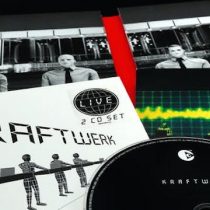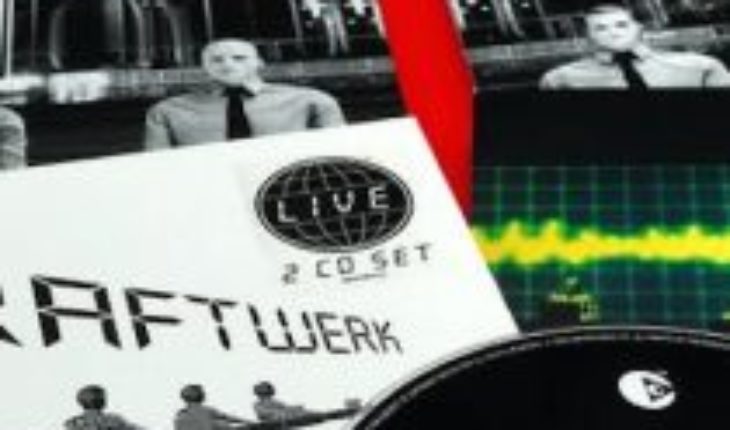
There are not too many bands whose influence has been such that it can be stated, unequivocally, that the music would have been different without them. Kraftwerk, one of whose founders was Florian Schneider, who died on 6 May at the age of 73, was one such band. Kraftwerk left an indelible mark on the sound of popular music by putting synthesized instruments on the front line and making electronic techniques a mainstream resource.
Schneider trained as a flutist at the Conservatory of Dusseldorf, which might seem like a strange background to a musician whose work played such a prominent role in shaping synth pop and electronic dance music from the 1980s on. But both he and his bandmate Ralf Hetter (who was also a student of the Conservatory of Dusseldorf) embodied an experimental approach to composition; an approach that crossed various musical fields.
Although they adopted this avant-garde character from the beginning, their first albums did not give the later improvisations in which electronic instruments were mixed with traditional ones. Like other German electronic music bands, including Can and Neu!, they were part of the so-called “krautrock” (as dubbed by English critics) or “Kosmische Musik” (cosmic music, a term used by German musicians).
Kraftwerk’s first major success (word meaning power plant) came from the 1974 release of his fourth album, Autobahn. The song of the same name was a musical description of the modernity represented by long motorway journeys in his native Germany. Surrounded by car sound effects and horns, it was possible to find in the distant echoes of the travel songs of the Beach Boys or Chuck Berry. The album was placed in the top ten of hits in Germany, the United States and the United Kingdom. A radio version of the song Autobahn (which lasted 21 minutes on the album) was also released, exceeding expectations by charting the best-selling singles in the United Kingdom, the United States, Australia and the Netherlands.
Although some acoustic instruments could still be distinguished, Autobahn’s composition stabilized around Schneider, Hetter and percussionists Wolfgang Fl’r and Karl Bartos. His sound ended up crystallizing into something precise, evocative and human, but at the same time strange, dragged by rhythmic chords created by custom musical instruments.
Influencing influencers
Although subsequent albums (including Radioactivity, Trans-Europe Express and The Man Machine) had a remarkable (if not sweeping) commercial trajectory, Kraftwerk’s real impact was not so much on highlighting the best-seller lists, but in broadening the horizons of popular music and showing the new possibilities that opened up for generations of avant-garde creators. The albums recorded by David Bowie in the late 1970s in Berlin had a great debt to Kraftwerk, to the point that the song V-2 Schneider, from the Album Heroes, was a direct allusion to the German band’s co-founder.
Synthesized electronic instruments were not new, but until then they had been considered the exclusive domain of experimental musicians located on the margins of the commercial circuit, such as the soundtrack of artists belonging to the more minority peripheries of the BBC Radiophonic Workshop, or simply as a novelty. Thus, until Kraftwerk’s arrival, his presence in rock music was tolerated, but he almost never received praise or held a central place.
I’m the operator: Florian Schneider in Ferrara (Italy) in 2005. Daniele Dalledonne via Wikimedia Commons, CC BY-SASchneider, and Rutter showed the way to those pop variants that used electronics as an essential foundation, and not just as an accompaniment, and thus facilitated throughout the 1980s the appearance of Gary Numan, Depeche Mode or The Human League.
But its influence extended far beyond its natural realm, the various forms of synth-pop. The precision with which they handled the cuts and the uniqueness of their sound made them a perfect source of inspiration for the sample, which was emerging strongly as a composition mode. His songs Numbers and Trans-Europe Express had a decisive influence on Afrika Bambaataa’s album Planet Rock, which is at the origin of hip-hop. In this vein, techno pioneer Derrick May has been very blunt about Kraftwerk’s role in the birth of this genus. He recalled the band’s popularity among techno creators in Detroit: “They did things that looked like coming from another planet. Everyone was hooked on Kraftwerk.”
Enriching the vocabulary of pop sounds
A determining factor in understanding his influence, as well as his own work, is that Kraftwerk operated tangentially with respect to the world of pop, as he had done before with regard to the world of classical music. Their robotic staging allowed them to sneak out of the game of fame, and on the other hand, and as the years went on, the band’s ensemble (and especially Schneider) was reluctant to give interviews. Having their own studio, the Kling Klang (which they called their “electronic garden”), as well as their control over their finances, allowed them to enjoy aesthetic autonomy. As his biographer Pascal Bussy was told in 2004:
We’ve invested in our machines and we have enough money to live on, simple as that. We can do whatever we want, we’re independent, we don’t make soft drink ads. And even if they might tempt us with such proposals, we would never accept them.
Their first and foremose goal was to build sounds, for which they deployed an open approach to all kinds of materials and themes. “We compose from anything,” Hetter told journalist Sylvain Gire. “Everything is allowed. There is no principle of work, no system.” Its great popularity turned out to be a side effect.
It’s ironic that a band only punctually interested in the pop ended up completely transforming it. Although the originality of his point of view has not yet been matched, his echoes resonate throughout pop, rock and dance music.
What makes them unique is that they didn’t want to just find their place by combining approaches of different genres. They wanted to discover unexplored paths and thus widen the boundaries of popular music’s sound vocabulary and demonstrate their inexhaustible ability to incorporate new ideas.
Adam Behr, Lecturer in Popular and Contemporary Music, Newcastle University
This article was originally published in The Conversation. Read the original.





